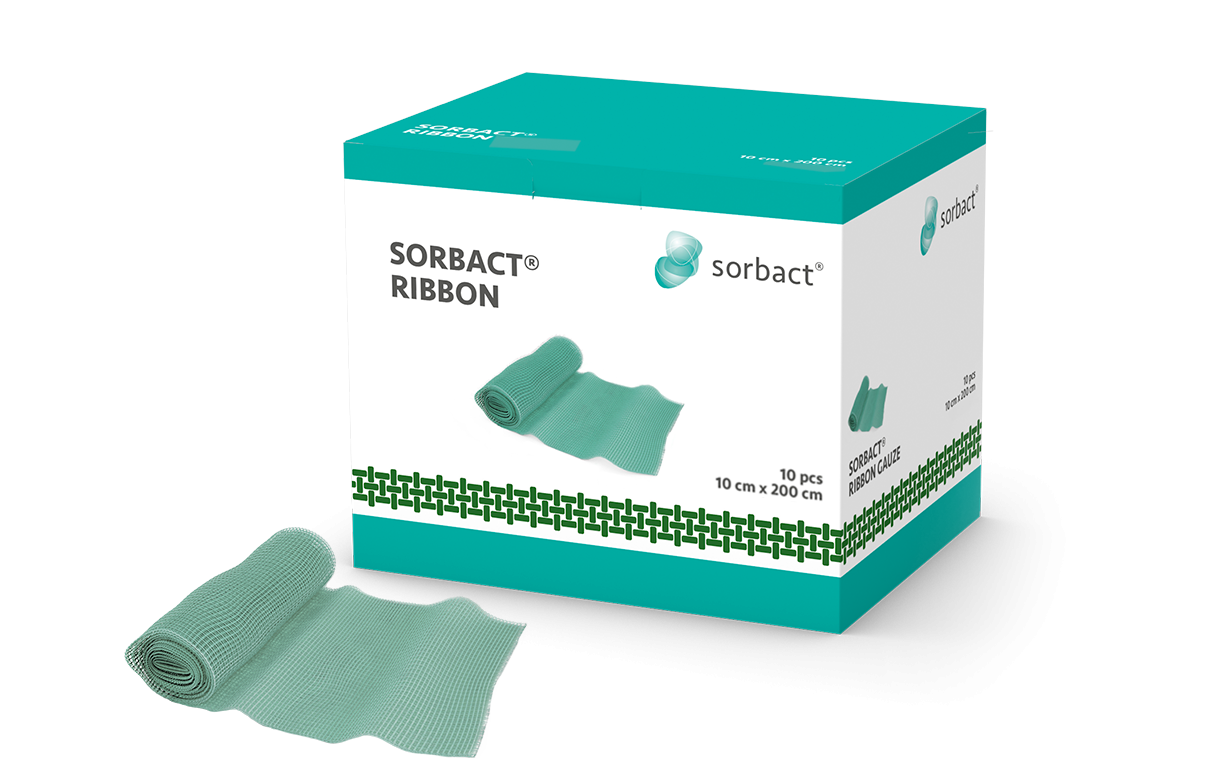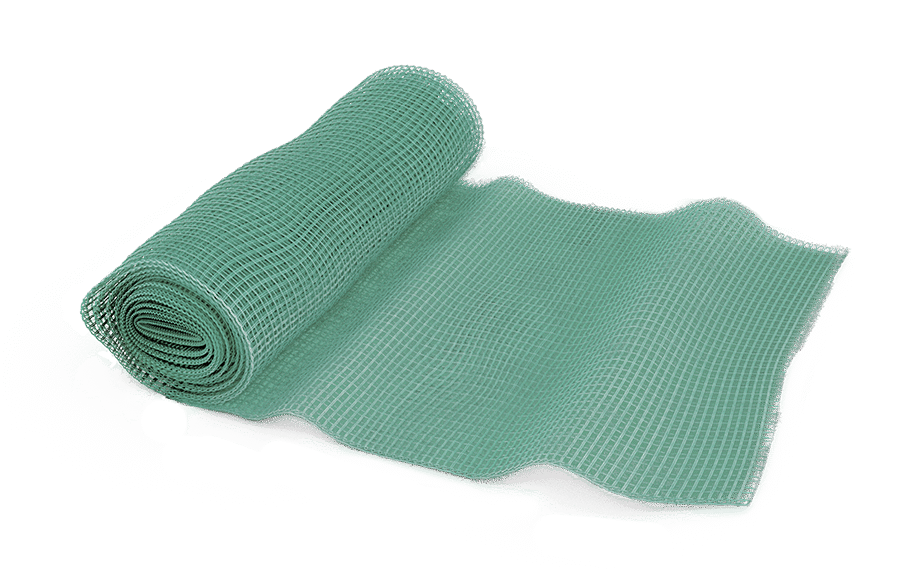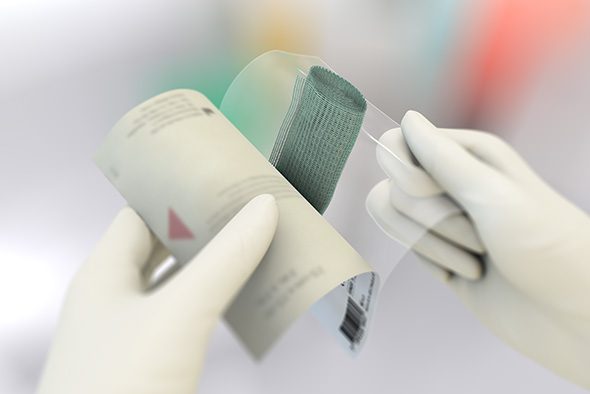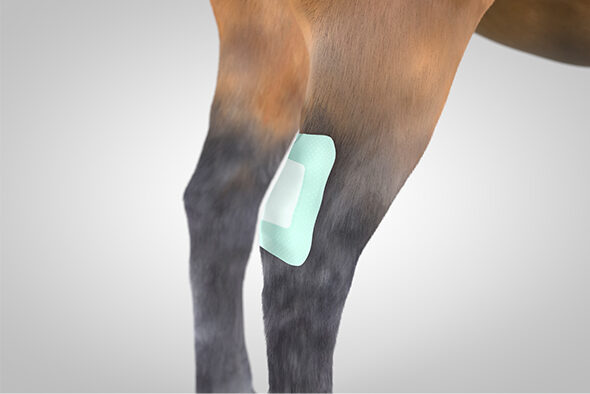
Sorbact Ribbon
Bacteria and fungi binding wound dressing
Sorbact Ribbon is a DACC™-coated bacteria and fungi binding ribbon gauze, based on Sorbact Technology.
- For superficial and deep wounds
- Cavities
- Fistulas
Reduces bioburden in superficial and deep wounds
Sorbact Ribbon is a DACC™-coated bacteria and fungi binding ribbon gauze, based on SorbactTechnology. Sorbact Ribbon prevents and treats wound infections[1]View reference information [2]View reference information and facilitates the wound healing process. It is suitable as a wound filler and allows passage of wound exudate into a secondary dressing.
Intended purpose: Sorbact Ribbon is intended for use in management of clean, contaminated, colonized or infected exuding wounds, such as surgical wounds and traumatic wounds. Sorbact Ribbon can be used on superficial and deep wounds such as cavity wounds and fistulas.

Bacteria-binding surface
The unique Sorbact surface binds bacteria from the wound, helping it to heal and preventing infection.
How to apply Sorbact Ribbon
-

Prepare the wound in accordance with local clinical practice. Choose the right size of dressing for the wound. The dressing may overlap the wound edges if necessary. Remove the dressing from the packaging using an aseptic technique. If the dressing needs to be cut, it must be cut across using an aseptic technique. Any remaining opened and unused parts of the dressing should be discarded.
-

Apply the dressing. Ensure it is in direct contact with the entire wound surface. Dress/fill the cavity or fistula. Avoid packing it too tightly. Always leave part of the dressing sticking out so that it can be easily removed. If the dressing needs to be cut to size, we recommend that the cut end is left outside the cavity/fistula to avoid any threads remaining in the wound.
-

Apply a suitable secondary dressing.
The dressing change frequency depends on exudate levels and the overall condition of the wound and surrounding skin. Should the clinical condition allow, the dressing can be left in place for up to 7 days. For detailed product information, contraindications, precautions and warnings, please read the applicable Instructions for Use (IFU) prior to use.
Sorbact Ribbon is available in four sizes
| Size | Pieces per pack | Reference number |
|---|---|---|
| 1 × 50 cm | 10 | 98115-10 |
| 2 × 50 cm | 10 | 98116-10 |
| 5 × 200 cm | 10 | 98120 |
| 10 × 200 cm | 10 | 98119 |
- Used in professional healthcare
- Does not emit active substances into the wound
A selection of the Sorbact product range is available at your pharmacy. If you are a vet, you can simply order via your wholesaler.
References
-
Stanirowski PJ et al. Randomized controlled trial evaluating dialkylcarbamoyl chloride impregnated dressings for the prevention of surgical site infections in adult women undergoing cesarean section. Surg Infect (Larchmt). 2016;17:427-435.
External link to reference1 (Opens in new tab) Back -
Kammerlander G et al. An investigation of Cutimed Sorbact as an antimicrobial alternative in wound management. Wounds UK. 2008;4:10-18.
External link to reference2 (Opens in new tab) Back
